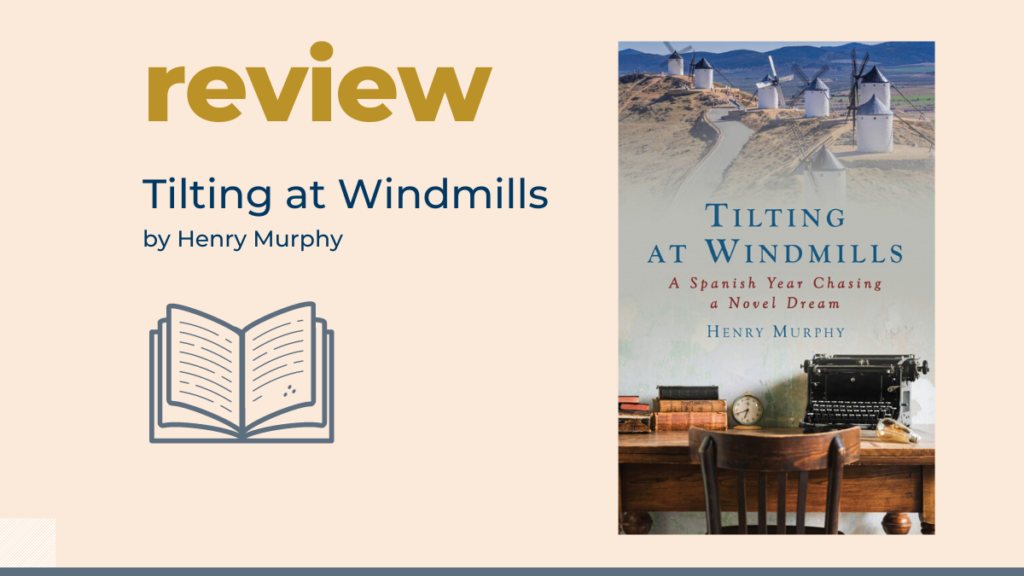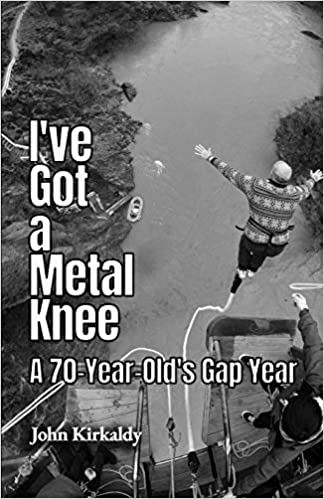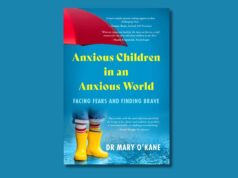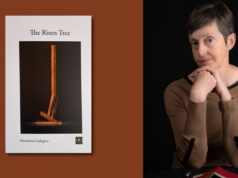
Tilting at Windmills: a Spanish year chasing a novel dream
by Henry Murphy. Orpen Press | 202pp | €15 pb | 9781786050908
review by John Kirkaldy
Literary mañana
It’s a sure-fire sign that you are getting old—you push back the chair and dramatically announce that you can’t stand any more of the rat race. You want to write that book, paint that picture and redefine philosophy for the 21st century. You want OUT!
The hero of Henry Murphy’s novel is a 64-year-old Dublin-based lawyer called Mark. He has always wanted to write a novel; time is running out; it’s now or never. The west of Ireland and the Wild Atlantic Way are dismissed. It has to be a white-washed house in a white-washed village in the mountains of Andalucía (‘one of those pueblo blanco places’).
I can identify with this dream. I spent most of my life as an academic urging students or would-be students to make the most of the gap year. ‘Look,’ I would tell them, ‘you pass as an adult (although the jury is out on that one). You are not lumbered with husbands/wives/partners/children/pets/mortgages/three weeks’ annual leave, to say nothing of middle-aged spread. God does not deal you a hand like that again.’ Ironically, I spent the most boring gap year of all time, aged eighteen, working as an accountant in the City of London. Two years ago, despite having a metal knee that set off security systems, aged 70, I went round the world and visited fourteen countries.
Finding the house and the village was the easy part. After that, Mark faces an uphill battle that gets steeper as time goes on. As countless aspiring writers have found, ever since the invention of parchment, writing is very often a stressful and difficult process, which has to be faced largely alone. The first three months produce three pages of writing. June sees a peak of 25,000 words (‘25,002 to be precise’). After that it is more grappling with characters and plot.
Obstacles to progress abound. There are family invasions, led by Mark’s wife, Helen, whose attitude ranges from lukewarm acceptance to outright hostility. Visits by grandchildren are welcome but distracting (‘You can’t write a letter, let alone a novel, with little ones knocking on your door every ten minutes’). Life also has a habit of getting in the way. There is a medical emergency, eventually sorted. In a hilarious episode, Mark is persuaded into addressing the local expat book club on novel writing—something he has yet to achieve. (The legal gift of the gab, fortified by some brandy, sees him through.) There are a lot of sporting events on television, which need attention. It is very hot and energy-sapping in July and August.
The main problem, however, is Spain. Life in that part of rural Spain makes life in rural Ireland look like the fast lane of the motorway. Deadline and work schedules do not feature very much in the local psyche. There are all those agreeable cafes and restaurants, and Spain does produce some fine wines, which need investigating. There are also the celebrations that cannot be missed: Easter, local festivals (feria), Christmas and the New Year.
Characters abound. A neighbour arrives with a gift of a year’s supply of lard. Emilio, the local hotelier, becomes Mark’s best friend in the area and a source of wisdom and advice. Mark helps with some English conversation assignments with a scantily dressed bikini-wearer by a swimming pool.
In the nicest possible way, this book is a bit of a con. Firstly and most obviously, Murphy has produced a novel by writing about how difficult it is to produce a novel! It is also clear that the author, who has lived in Spain since 2014, knows the country a good deal better than Mark. Also, Mark’s eventual emerging hero, Ben, owes a good deal to Mark himself (something that often happens in first novels).
Lots of witty dialogue, good description and a good pace make for an ideal summer page-turner. There is also a basic Irish–Spanish phrase book at the end. It is good to know the difference, linguistically, between Stations of the Cross and a pub crawl. There is also a hint of romance and a surprise ending. I enjoyed reading this and I think you will too.
***
Review by John Kirkaldy.
John taught at universities, colleges and schools in Britain, Jamaica and Australia. He was a tutor with the Open University (OU) for 37 years and contributed to a school textbook and three Irish history academic anthologies. He recently wrote a book about his global travels and adventures through 14 countries: I’ve Got a Metal Knee: A 70-Year-Old’s Gap Year?













